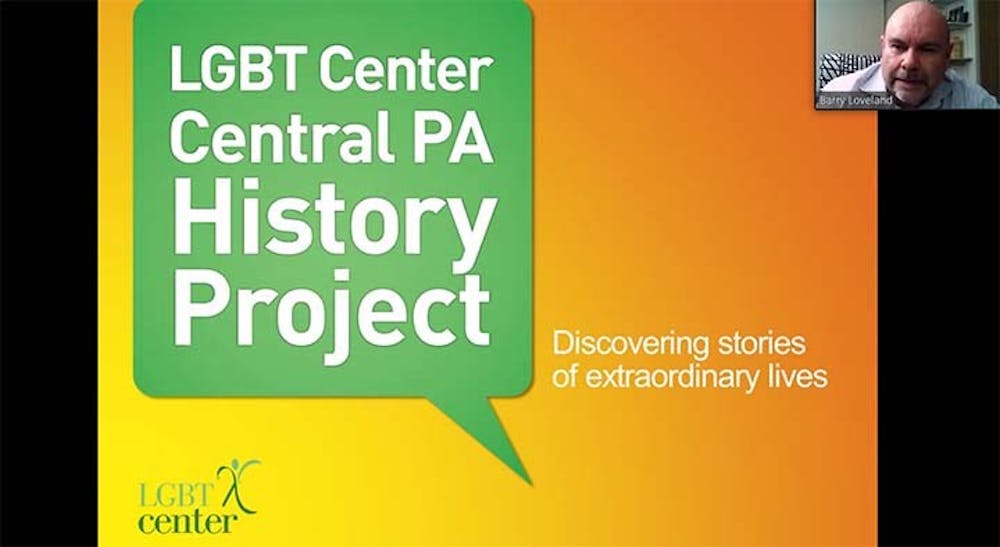Researchers are shining a spotlight on LGBTQ+ history in Pennsylvania and at Shippensburg University.
Various departments collaborated to host SU alumni Mary Libertin, Linda Kesselring and Char Hanks to share their stories of LGBTQ+ life on campus.
The SU grads shared their stories from their time at the university as LGBTQ+ individuals. These stories are more than just pleasant memories from alumni and professors. They are part of a larger history.
While LGBTQ+ students have been attending SU since its founding, many of their stories have not been remembered. SU history professor Steven Burg is working to collect these stories for an LGBTQ+ history project.
Burg seeks to archive these stories and history. Burg’s project is inspired by Barry Loveland’s work throughout central Pennsylvania.
Loveland started documenting LGBTQ+ history across central Pennsylvania through the LGBT Center Central PA History Project with artifact collections, exhibits, collaborations and programs. Burg hopes to mirror this within SU’s own historical archives.
Libertin, Kesselring and Hanks each shared their experiences at SU and how the LGBTQ+ community on campus impacted them, and in turn how they made an impact within the community.
Kesselring was a chemistry major in 1971 when she began looking for support on campus. She reached out to a professor, Janet Cooper, who urged her to start her own group to create a voice for LGBTQ+ students. The Shippensburg Students for Gay Rights held its first official meeting on May 9, 1974, with Kesselring as the founder.
Hanks remembers sitting in a seminar held by the club that fall as a young student, “in the throes of coming out,” as Hanks put it.
She said she was lucky enough to experience very few negative experiences relating to her sexuality but knows that she is in the minority in that regard and was even told by her friend that, “Gay life is often defined not by your first sexual experience, but by your first rejection.”
Libertin was part of the more recent chapter of LGBTQ+ programs on campus and even started a variety of programs including the “Take Back the Night” event that still continues today. She taught the first LGBTQ+ course in 1994 and said she has made great strides at SU within the LGBTQ+ and feminist communities before retiring in 2016.
Burg hopes to connect with SU LGBTQ+ community members who have graduated for the project. He wants them to be remembered and that it can become a platform for students to speak out about current issues on campus.
“It is important that we take care of this history,” Loveland said.
If anyone has information about LGBTQ+ alumni and would like to submit those stories, visit ship.libwizard.com/f/lgbtqhistoryproject or reach out to Burg at sbburg@ship.edu with any questions.



The Slate welcomes thoughtful discussion on all of our stories, but please keep comments civil and on-topic. Read our full guidelines here.